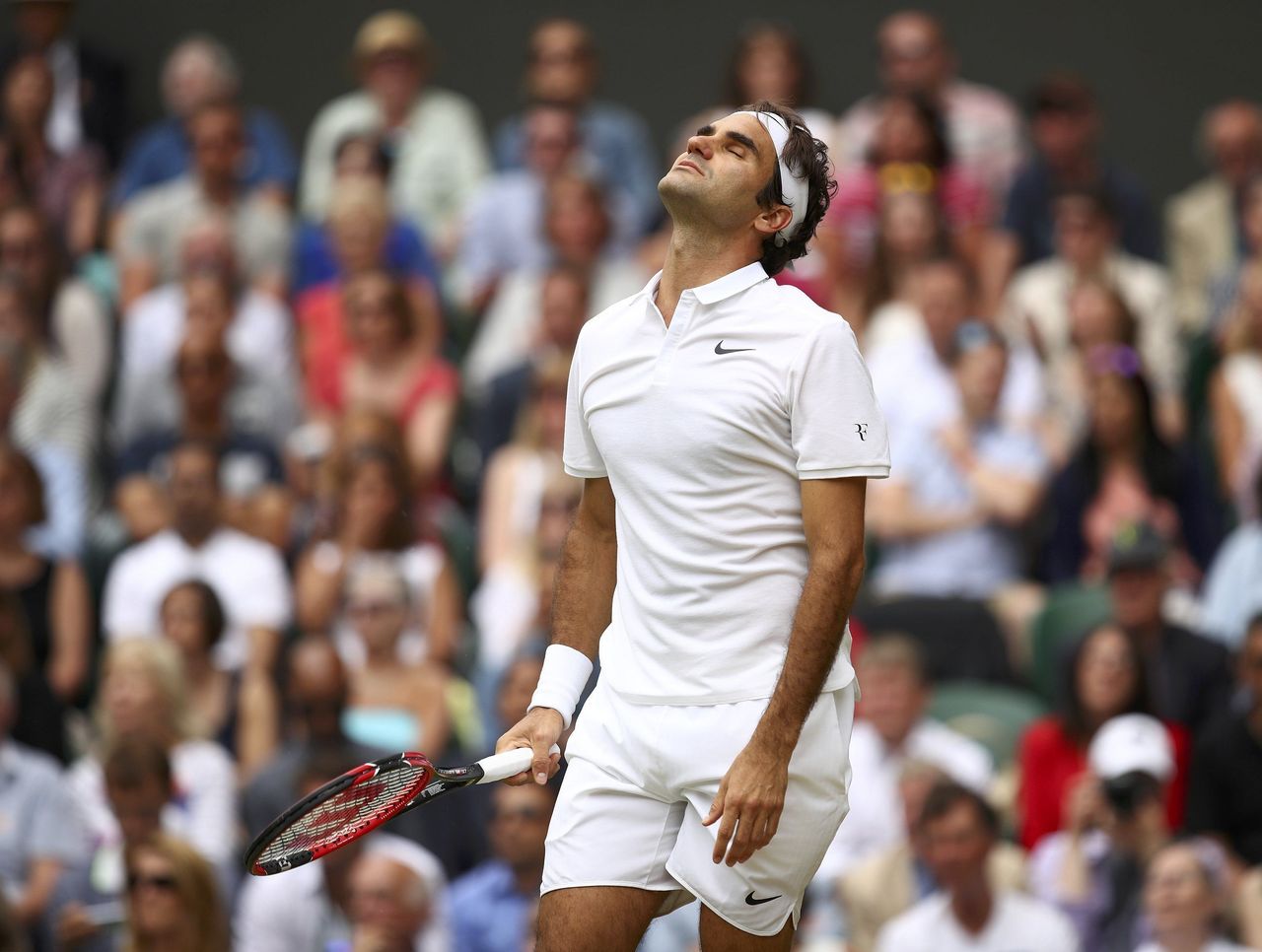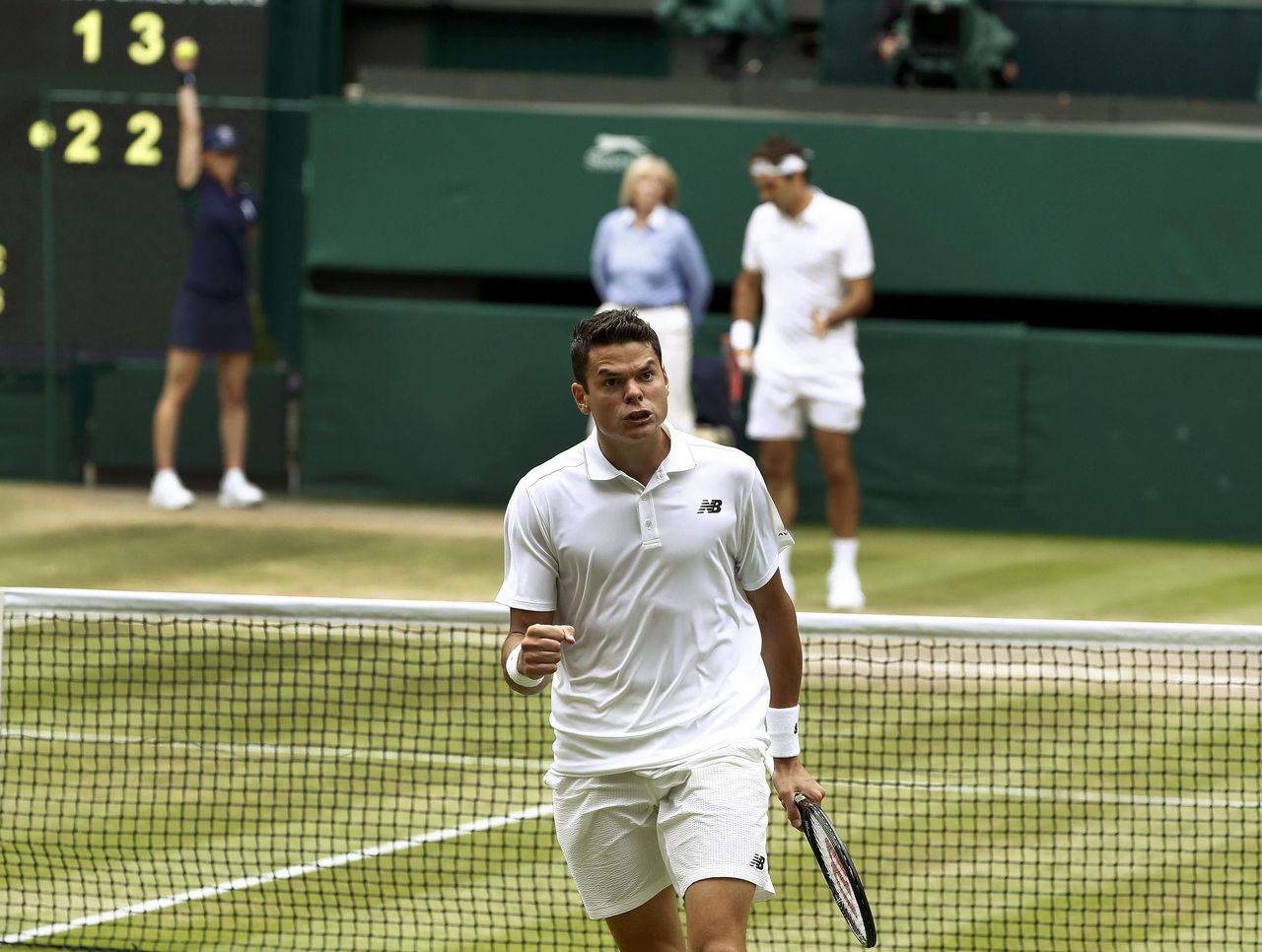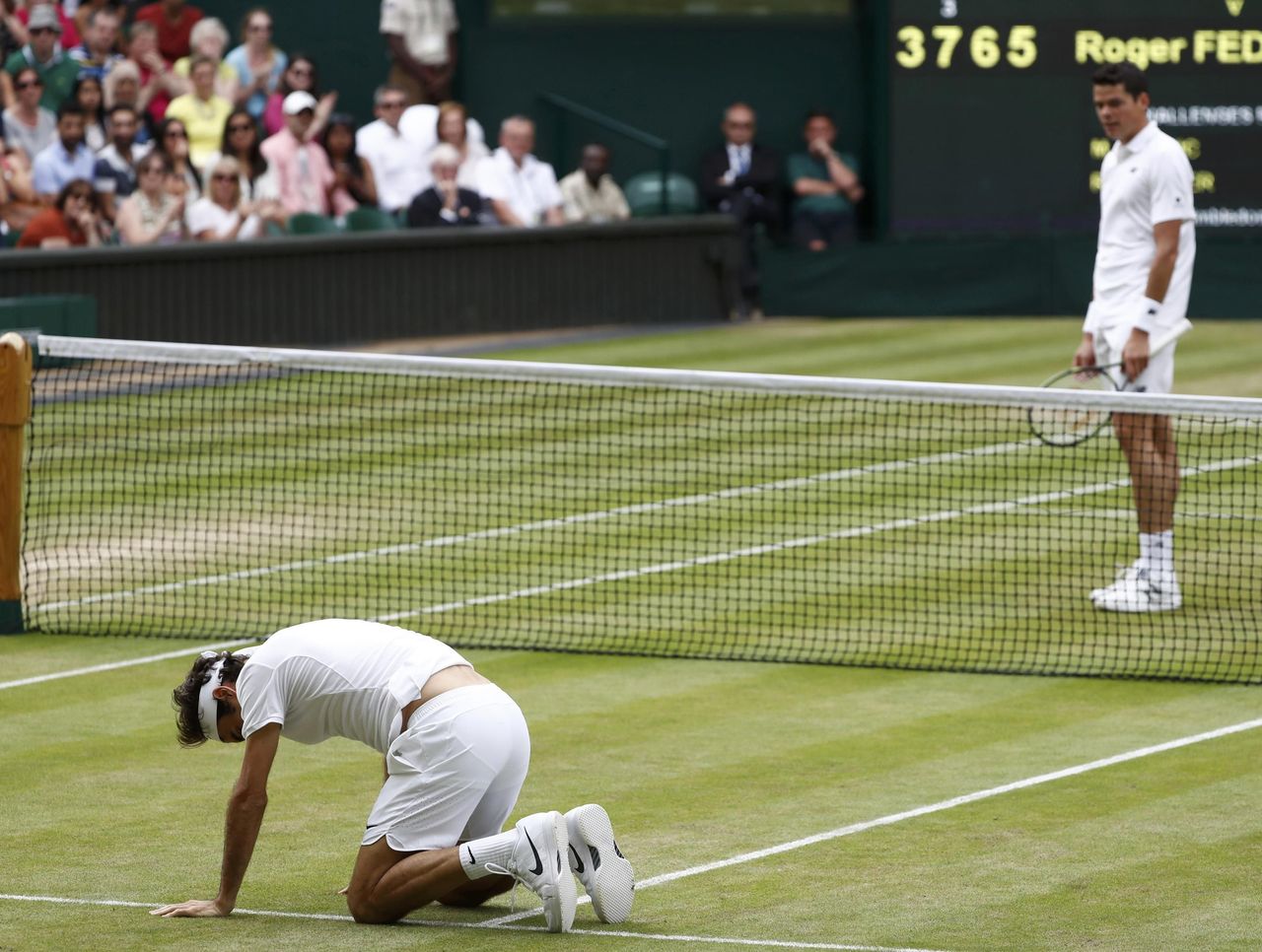Raonic upends Federer in 5 sets to reach 1st Slam final
Milos Raonic is finally through to a Grand Slam final.
Raonic - who for the longest time remained an up-and-comer that never quite came all the way up, whose knuckles were getting raw from knocking repeatedly on the door - handed Roger Federer his first-ever semifinal loss at Wimbledon (10-1) on Friday, coming from behind to win 6-3, 6-7 (3), 4-6, 7-5, 6-3. He's the first Canadian man ever to make a major final.
Federer had finally seen the sea - the one separating him from an 18th major title - part, when Novak Djokovic got bounced in the third round. Against Raonic, he had the finish line in view multiple times. But he lost his equilibrium for just a moment, at the wrong moment, and the opening was just large enough for the towering Canuck to slip through.
The turning point

Federer was cruising on serve in the fourth. While Raonic had been digging deep and holding on by the skin of his teeth, Federer had breezed along undisturbed with pinpoint placement and relentless forward movement.
Serving at 5-6, he was about to take the set to a tiebreaker. He hadn't faced a break point since the first set, and Raonic looked all but ready to dump the game. Down 40-0, Raonic took a nothing-to-lose forehand cut, and landed a sideline-clipping crosscourt winner. No biggie. The next point, Federer double-faulted. OK. Then, he double-faulted again.
The opportunity emboldened Raonic. Struggling badly with his return game all match, he found it at the best possible time. In the course of the ensuing four-deuce seesaw, Raonic clocked two backhand return winners and a scathing forehand return that didn't come back. On his third break point, he clinched the set with a backhand pass down the line.
Milos' mental stamina

That 5-6 game was the definitive turning point, but there were countless others throughout the fourth set. On his service games at 2-2, 3-3, 4-4, and 5-5, Raonic faced deficits of 15-40, 15-30, 30-40, and 0-30. He held each time. You could call those blown chances for Federer, but they were more like snatched chances by Raonic.
He hit bravely with his back against the wall. He got himself out of trouble with 140-mph body serves and daring, 120-mph second offerings. On the 0-30 point at 5-5, he hit a lifesaving lunging volley to erase Federer's near-perfect, would-be forehand pass.
Raonic played a poor second-set tiebreak and hit a lull in the third. His boat took on water, listed significantly at points, but never rolled over. He saved eight of nine break points in all, and took his service game to another level in the deciding set. He lost just five points on serve, and authoritatively slammed the door in the close-out game.
114 body unreturned 15-0
— Howard Bryant (@hbryant42) July 8, 2016
136 ace wide 30-0
119 wide unreturned 40-0 triple match
132 Federer FH wide...GSM Raonic d. Federer
More than anything, Raonic's mental toughness defined his breakthrough victory.
The fallen champion
When Federer took an awkward spill in the fourth game of the final set, it seemed like a bad omen ("I don't ever fall down," he said later). Nor did it seem like a promising sign when he took a medical timeout in the middle of the game, with break point on the table.
He ultimately saved that break point, but set up another one with another double-fault two points later, and got broken when Raonic won a furious exchange at the net. Federer never even sniffed a rebreak.

The circumstances will make it tough for him to find the silver linings, but there are plenty. Federer came into Wimbledon having played just 12 matches since the Australian Open; he underwent knee surgery in February, dealt with a stomach virus in March, and in May missed his first Slam (the French Open) since before the turn of the millennium due to a back injury; he'd been shaking off cobwebs and struggling with his fitness; he trailed two sets to love and faced three match points in the quarters. He'll turn 35 in a month. For all that, he finished a set shy of the finals. That's incredible.
And yet, even as he admits he "overachieved" at the tournament, this has to feel like a colossal missed opportunity. On his favorite court, with his most daunting rival out of the way, and the crowd firmly in his corner, he was close enough to taste it. But close enough is as close as he got.
There's always next year, sure, and Federer has made a career of defying expectations. His quarterfinal comeback against Marin Cilic proved he's still got a flare for Grand Slam magic. But with each passing year, that magic ebbs away a little bit more. And he may never see another chance as good as the one he just watched slip away.